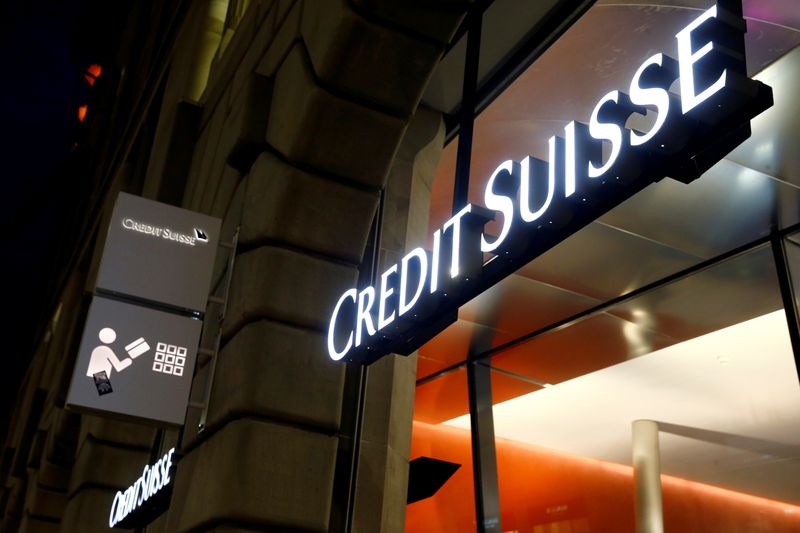(Reuters) - Credit Suisse (SIX:CSGN) will pare back its investment bank and focus on building its wealthy client base, the Swiss bank said on Thursday, as it regroups following a string of scandals.
Chairman Antonio Horta-Osorio, who joined in April from Britain's Lloyds (LON:LLOY) Bank to help stop the rot, has said the scandals are the gravest he has seen.
Here are some details about the main crises to beset the bank in recent years:
TUNA BOND FRAUD
Credit Suisse pleaded guilty to defrauding investors over an $850 million loan to Mozambique meant to pay for a tuna fishing fleet and is paying U.S. and British regulators $475 million to settle the case under a deal announced in October.
About $200 million of the loan went in kickbacks to Credit Suisse bankers and Mozambican government officials. The bank was aware of a huge shortfall between the funds raised and the value of boats bought but failed to disclose this to investors when the loan was restructured in 2016, the regulators said.
Credit Suisse also arranged a loan that was kept secret from the International Monetary Fund (IMF). When Mozambique admitted to $1.4 billion in undisclosed loans the IMF pulled its support, sending the southern African country's economy into a tailspin.
ARCHEGOS DEFAULT
Credit Suisse lost $5.5 billion when U.S. family office Archegos Capital Management defaulted in March. The hedge fund's highly leveraged bets on certain technology stocks backfired and the value of its portfolio with Credit Suisse plummeted.
An independent report into the incident slammed the bank's conduct, saying its losses were the result of a fundamental failure of management and control at its investment bank, and its prime brokerage division in particular.
The report said the bank was focused on maximising short-term profits and failed to rein in voracious risk-taking by Archegos, despite numerous warning signals, calling into question the competence of its risk personnel.
GREENSILL FUNDS COLLAPSE
Credit Suisse was forced to freeze $10 billion of supply chain finance funds in March when British financier Greensill Capital collapsed after losing insurance cover for debt issued against its loans to companies.
The Swiss bank had sold billions of dollars of Greensill's debt to investors, assuring them in marketing material that the high-yield notes were low risk because the underlying credit exposure was fully insured.
A number of investors have sued the Swiss bank over the Greensill-linked funds. The bank said on Sept. 27 it had recovered and returned about $6.3 billion to investors but has warned it may struggle to recoup $2.3 billion of the total.
SPYING SCANDAL
Credit Suisse Chief Executive Tidjane Thiam was forced to quit in March 2020 after an investigation found the bank hired private detectives to spy on its former head of wealth management Iqbal Kahn after he left for arch rival UBS.
The bank repeatedly played down the episode as an isolated incident.
In October, however, Switzerland's financial regulator (FINMA) said Credit Suisse had misled them about the scale of the spying. It said the bank planned seven different spying operations between 2016 and 2019 and carried out most of them.

In a rare rebuke, it said there were serious organisational shortcomings at Credit Suisse and that the bank had even tried to cover its tracks by doctoring an invoice for surveillance.
In response, Credit Suisse said that it condemned the spying and had taken "decisive" steps to improve its governance and strengthen compliance.